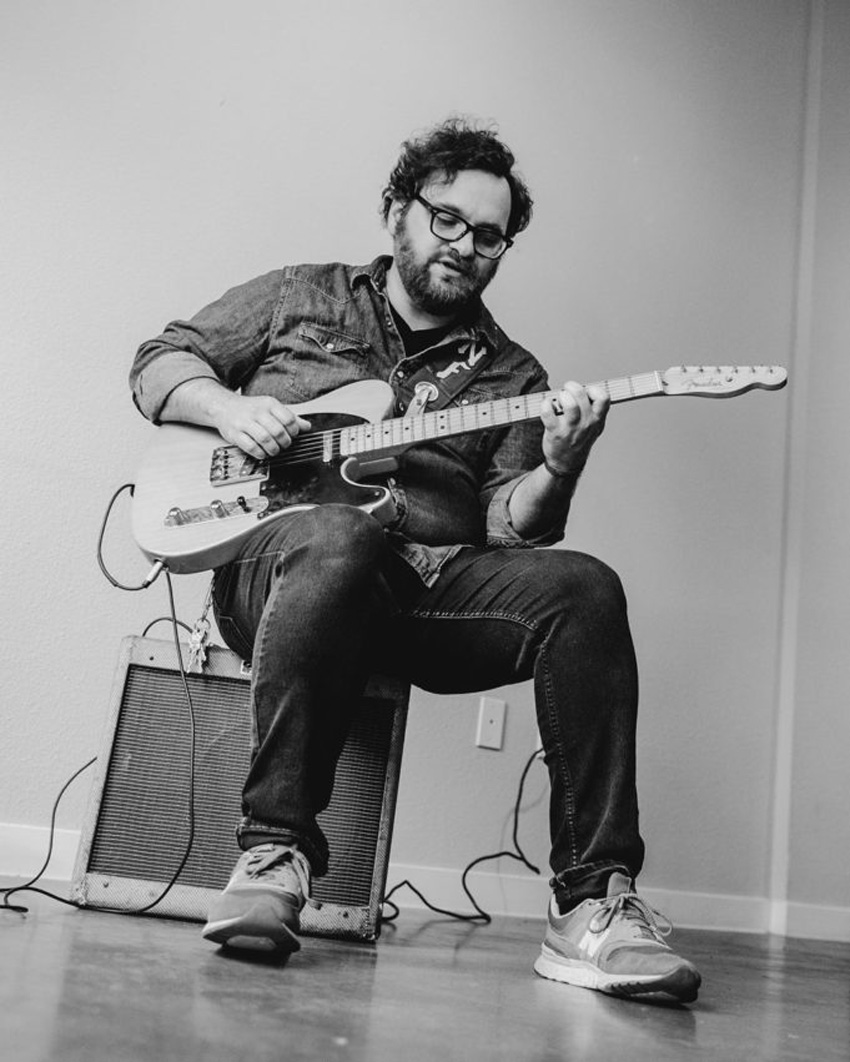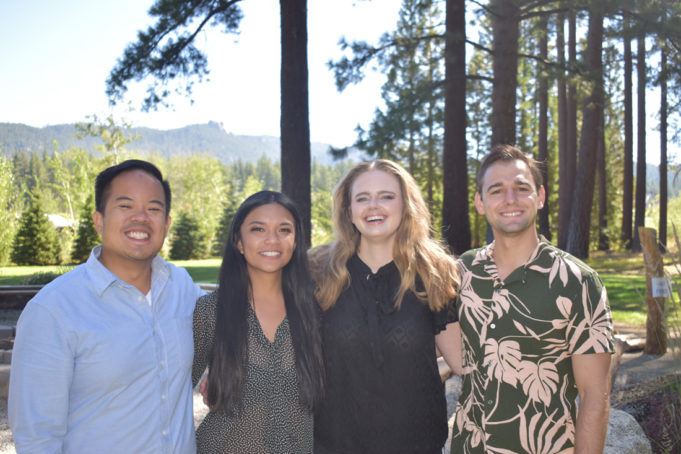Not Shark Tank
Understanding people. That’s what Dunnu Devulapally said is his real skillset. The founder of the mental health-minded nonprofit NRVE (pronounced “nerve”) said businesses across the country are faltering because they fail to understand their most important asset — people.
Close to where we were sitting, a box overflowed with pairs of new socks, something Devulapally and NRVE volunteers said are in short supply at area homeless shelters.
Since launching last month with a small but hardworking and efficient team, NRVE has set ambitious goals that focus on providing area nonprofits with metrics, polls, and data on local populations that struggle with mental health problems. Setting a modest sock-drive goal might seem underwhelming for a team of ambitious twenty- and thirtysomethings, but Devulapally said it’s important to meet the community, listen to their needs, and slowly spread the word about your mission.
In today’s Shark Tank-esque business and nonprofit environment, Devulapally’s ethos is countercultural. He said he’s comfortable staying in first gear for as long as it takes. His research projects may take years to complete, but he said finding new solutions to address youth suicides, seemingly intractable homelessness rates, and depression in the United States will take new approaches and a willingness to reevaluate how we address those systemic issues.
One volunteer with the group told me his parents were stricken with cancer when he was a kid and the mental anguish that he and his family had to go through drives him to help others. Many folks who struggle with mental health issues, he added, need someone who can listen closely to them and empathize with them.
By relying on data-driven research and keeping a low overhead, Devulapally said NRVE is well positioned to apply for donations from foundations and corporations. The culture of large charitable institutions needs to evolve, he said. He hopes more nonprofits see collaboration rather than competing for individual grants — a finite pool in Fort Worth — as a means of doing the most good.
Follow NRVE across all major social media platforms @NRVEhq.

Courtesy NRVE
Check Out that Bass
Fort Worth Public Library recently started an initiative that allows locals to check out — like books — donated instruments. Guitars, keyboards, and select percussion instruments are available now along with accessories like portable PA systems, guitar slides, and amplifiers.
“We’ve seen a great response from the community in checking out all of our current instruments,” said music librarian Rita Alfaro. “We were surprised to see demand for certain instruments we weren’t sure there would be a large interest in, like our banjo. We only ordered one to start with, and it immediately had a waitlist.”
Before bringing instruments to any Fort Worth library, potential donors should submit a printable form via FortWorthTexas.gov/departments/library.
It all starts with a library card, which provides unlimited access to on-demand online training services. Through @FortWorthPublicLibrary on YouTube, rootsy Fort Worth singer-songwriter and all-around bon vivant Jacob Furr offers free guitar lessons.

Courtesy Fort Worth Public Library
A Big Phan
Affordable housing remains in short supply in Fort Worth. The average Texan spends about one-third of their income on housing costs, based on findings by the Texas Affiliation of Affordable Housing Providers, a nonprofit trade group. With average monthly rates of $1,400 locally, apartments are often financially out of reach for working-class folks.
Realtor Tuan Phan and his team of volunteers have a novel approach to making housing affordable for low-income locals. Through the Phan Foundation, young carpenters, often after aging out of the foster care system, are hired to renovate homes that are then sold to raise funds for the nonprofit that buys low-rent properties. Young men and women who are statistically more likely to experience homelessness are gainfully employed, and the low-income housing managed by the foundation provides a roof for the homeless and disadvantaged.
Through their website, foundation members make their mission clear: “Everyone deserves safe, sanitary, and affordable housing. Our first program will be dedicated to providing affordable housing to low-income individuals/families.”
Learn more at The-Phan-Foundation.org.
A Bright Future
Meghan Farmer founded The Bright Factory as an ethically minded for-profit company that restores dignity to women leaving the local carceral system. The end products will be T-shirts sold in bulk to apparel stores and vendors that then customize the tees with personalized prints.
Farmer’s work in the fashion industry showed her the environmental costs of fast fashion and the safety concerns of poor working conditions at garment factories across the globe. The 2012 fire at the Dhaka garment factory which killed 117 brought national attention to the problem.
“I’ve been a part of the glitz and glamor,” Farmer writes on her website, “but I also saw the seedy underside of the fashion industry — endless production leading to endless consumerism, production completed by workers who are underpaid, overworked, and working in unethical conditions.”
Beyond using ethically sourced materials ginned and milled by workers in safe environments who earn living wages, The Bright Factory will employ formerly jailed or incarcerated women to cut and sew the tees right here in Fort Worth.
Follow this trailblazing company at TheBrightFactory.com.












